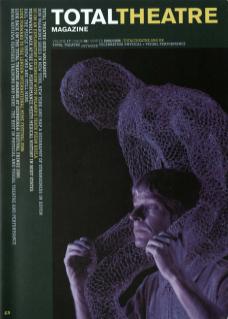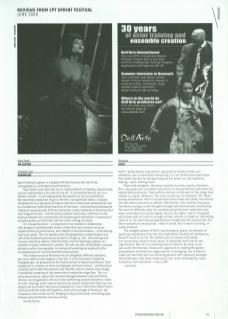Ooff's performance experiment approach to theatre holds your attention, but is ultimately uninspiring. It is an intellectual experience that looks like fun for the participants but leaves us, the audience, feeling – well, nothing much.
Short and energetic, the piece revolves around a sporty character, Mini, who gives pre-recorded instructions to two performers who have not heard them previously. They perform actions on the part of the stage that relates to a grid-reference. Her voice could say, for example, '02. Make boxing movements.' Mini's live personification does not speak, but directs the two others around in a referee-like fashion: she controls the space. The whole concept is well thought through and meticulously constructed. The level of difficulty that the unrehearsed performers experience has been controlled to a subtle degree. But on the night I saw it, the guest performers did not commit enough to their actions to make an interesting show of it, nor were they grappling hard enough with the instructions for their humanity to be exposed. I wasn't bored, but it wasn't exciting. It needs emotion.
The alleged subtext of Mini's psychological space, her dreams of sporting competence that flip into nightmares of physical inadequacy, doesn't touch us at all. The symbols are so closely controlled, our unconscious doesn't have space to elaborate and find its own significance. But nor is a meaning clearly there to be read, so we just watch the formula. Rotozaza's approach to making the games and patterns of events on stage explicit is intriguing, but it doesn't make you feel that you are watching genuine self-exposure amongst the performers: this show needs more risk, more vulnerability, more humanity, more extremes – more ooff!

